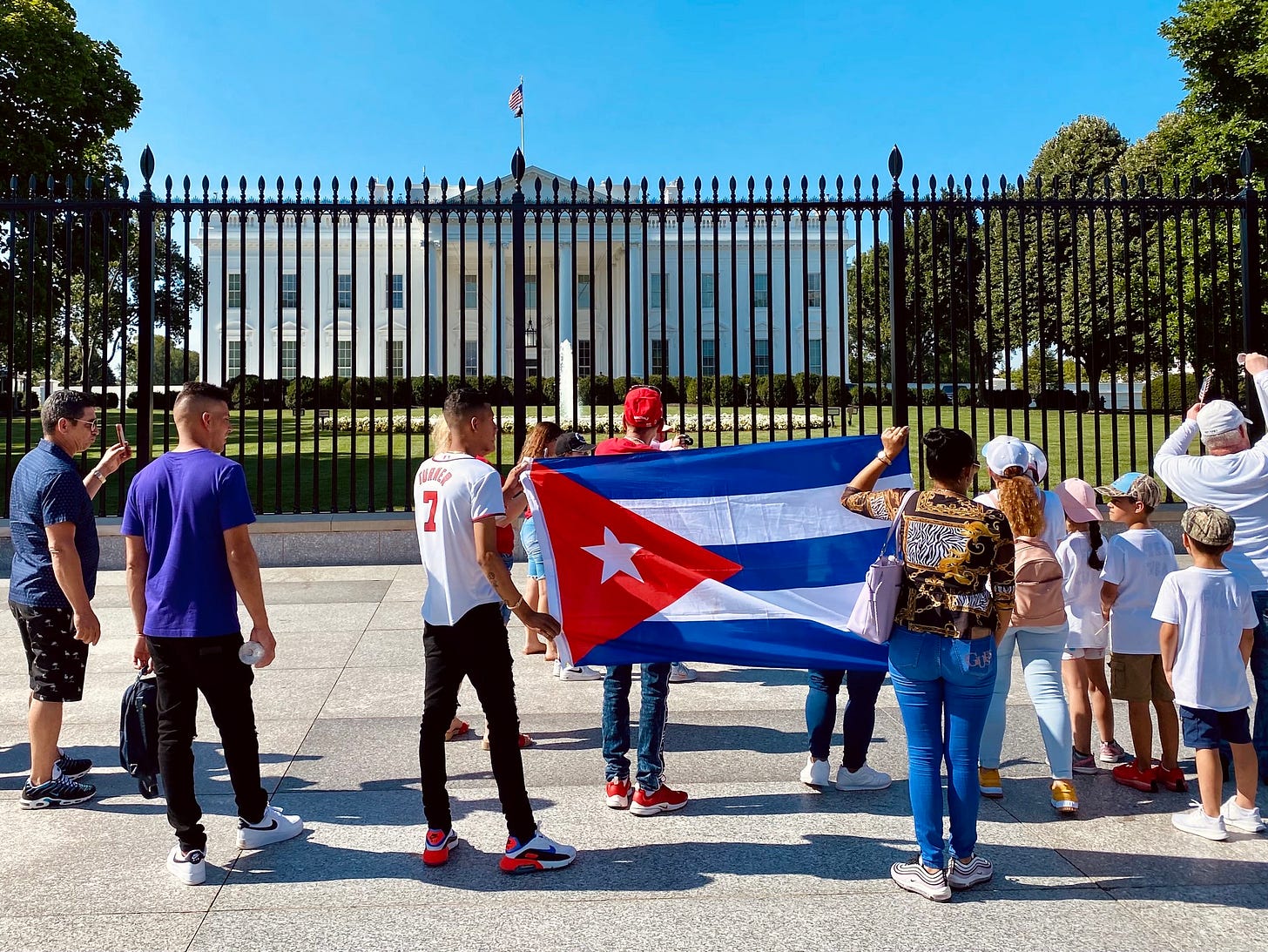Toooo much has happened this week. What did I miss?
This week we’ve rounded up some of the big Canadian and world news that might have been on your radar but maybe didn’t make it to your feeds.
Hey there, and welcome to the 39th issue of The Supplement, a newsletter that fills in the gaps of your other news intake. This is Sierra, one-third of the Supplement team!
Each week, we pick a question submitted by you, our readers. If you’d like to submit a question, email us at thesupplementnewsletter@gmail.com. Befriend us on Instagram, and on Twitter.
If you like what you read each week, consider buying us a coffee ☕
This week, we’re tackling this question: Toooo much has happened this week. What did I miss?
TL;DR: This week we’ve rounded up some of the big Canadian and world news that might have been on your radar but maybe didn’t make it to your feeds. More unmarked graves were found in B.C., and there was another anti-muslim hate crime in Ontario. We’re also unpacking the tip of the iceberg to do with the unrest in the nations of Haiti, South Africa and Cuba.
More unmarked graves uncovered
Penelakut Island, Penelakut First Nation (British Columbia)
Over 160 more graves have been confirmed to be located on an island off the B.C. coast, according to a local First Nation.
The Kuper Island Industrial School was a Catholic institution on the island that operated until 1975. The recent discoveries of grave sites across Canada have been a reminder of the devastating legacy of residential schools.
“It is impossible to get over acts of genocide and human rights violations. Healing is an ongoing process, and sometimes it goes well, and sometimes we lose more people because the burden is too great,” reads a statement from Penelakut Tribe Chief Joan Brown.
Also today: Tk’emlups te Secwepmc First Nation is releasing updates to the Kamloops unmarked graves.

Hate crime attack
Hamilton, Ontario
A Muslim mother and daughter were almost hit by a car after a man chased them down in his vehicle, saying he wanted to kill them.
The altercation started in the parking lot of a plaza where the man started “uttering threats and yelling slurs targeting Muslims,” Hamilton Police said.
The women hid in nearby bushes until they were able to call for help. The man has since been arrested and charged. The incident highlights the continued and disturbing hate crimes against Muslims in Canada.
The assassination of Haiti’s president
Port-au-Prince, Haiti
The Haitian President, Jovenel Moïse, was shot and killed at his private residence and a major investigation is now underway. Included in the list of suspects are a former senator, former government official, a convicted drug smuggler and many more from the Colombian military. (Plus there are some interesting Canadian angles.)
Interim Prime Minister Claude Joseph says he will work with opposition and allies of the late president. There are at least two other officials claiming to be the legitimate head of government as the power struggle to fill the political void goes on.
Haiti is now experiencing chaos: civilians are having trouble accessing basic goods and gasoline, while protests are breaking out across the country.
Unrest in South Africa
Johannesburg & Durban, South Africa
South African Ex-President Jacob Zuma was sent to jail last week after he didn’t appear at a corruption inquiry, and it has since caused some of the worst unrest in the country in years. More than 100 are dead, and food shortages are on the rise as looting and violence are struggling to be contained.
Geoffrey York from The Globe and Mail is the only correspondent from Canadian media located in the continent of Africa. He writes that part of the rioting is fuelled by long patterns of “criminality and lawlessness” of the state “at a time of rising unemployment and severe inequality in the postapartheid society.”
More than 1,230 people have been arrested, and thousands of soldiers and civilian volunteers are patrolling the worst hit areas, mostly in the port city of Durban.
Protests in Cuba
Havana, Cuba
Cuba is also experiencing some of the largest protests since Fidel Castro was president. Most are participating out of frustration of food, medicine and electricity shortages. But at large, there is also a call for political change.
The economic problems driving dire circumstances are partially from a loss of tourism during the pandemic and also a restructuring of currency that favoured foreign money, making it near impossible for some people to feed their households. Blackouts are also widespread, which the government blames on the US trade embargo blocking resources to update infrastructure.
The US has blocked trade with Cuba for decades — and for the 29th year in a row the UN General Assembly has demanded the US put an end to it. Analysts add that there are other problems with the country’s political system that amplify everything going wrong. And COVID-19 hit at an already vulnerable time.
Here’s someone to follow:
I’ma recommend you follow the previously mentioned Geoffrey York. He’s the only reporter from all of Canadian media located in Africa and he’s done some really outstanding and deep work.
Here’s a story to check out:
And while we’re talking about foreign correspondents, it’s important to acknowledge that Canadian media has more to do to support our understanding of world news. More specifically, you should read Steven Zhou’s piece for Canadaland about our foreign correspondents. He calculates that there are 32 foreign correspondents between six major Canadian news organizations. Seven of them are journalists of colour; only five of these seven are women. Think: what perspectives are we reading through this lens?






